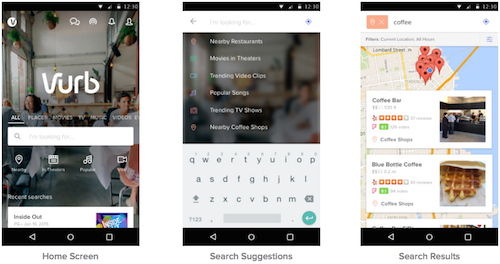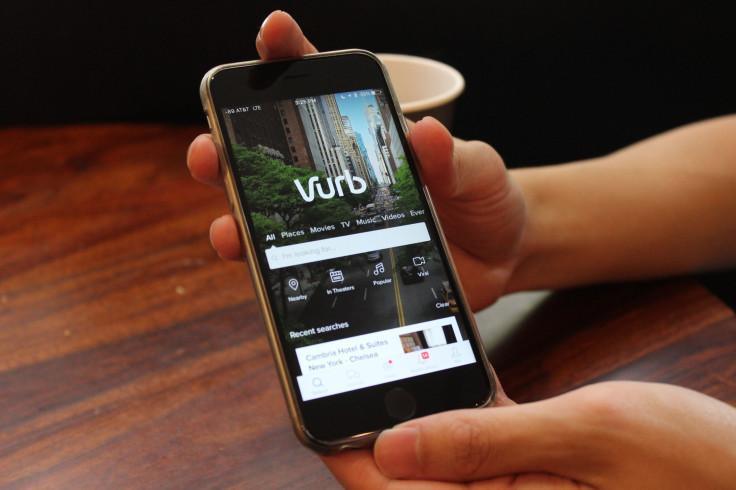Imagine planning a dinner and movie night with friends. You may start on the IMDB app to find a movie, buy your tickets on Flickster and then you may pull up Yelp to get reviews on your restaurant of choice, after which you may go to Open Table to make a reservation. Of course you need to know where and how far the restaurant is, so you pull up Google Maps. When you realize it’s a 45-minute train ride away, you concede to order an Uber. That is at least six applications a user may access just to plan a night out.
Considering this may make you want to scream out the old infomercial adage, 'there has to be a better way.' The average smartphone user has between 20 and 30 applications on their device and spends on average 30 hours per month tinkering through apps, according to a 2014 research report by Nielsen.
Vurb aims to be the app overload solution, by acting as a central hub for all of those applications. It makes planning and executing tasks and planning seamless and much less cumbersome.
“People don’t realize how broken [the app process] is until they step back and see, wow, I am using 10 different apps to do things,” Vurb founder and CEO Bobby Lo told iDigitalTimes.
Users start with a search and end with a plethora of contextual options and direct access apps. Results show up on Vurb Cards, which include the most immediate information a user needs. If a user needs further information, a tap on the card can send them to the full app, while hitting the back button brings them back to Vurb to search further.
Vurb partners with apps including Yelp, Rotten Tomatoes, Metacritc, Foursquare, Tastemade, covering many of the most frequently used app categories, including places, movies, TV, music, videos and events.

Lo describes Vurb as a single player experience as well as a social experience. Users can search the app for the sole purpose quickly organizing an outing or event. Or users can create profiles and Vurb Decks to organize searches, such as “Favorite New York restaurants.” Users can follow other users and friends and communicate with them in one-on-one or group chats. Users also have the option of relaying Vurb Decks to other users through social media, text or email.
Lo says Vurb will grow and develop, not only to meet users needs but also as technology emerges. A shopping vertical utilizing new payment services such as Apple Pay, Android Pay and Samsung Pay are among future Vurb projects.
Vurb also plans to create travel section to connect users with the best apps and details for airfare, hotel prices and hotel reviews. Lo says some verticals often requested by users include sports, news and books.
Vurb has been available on iOS since late February and has garnered between 50 and 100 thousand downloads on the Play Store since its Aug. 21 Android launch. However, it is completing again at least 20 other applications for a prime spot on your smartphone.
“If Vurb becomes that hub it’s going to be a home screen app that you put on your phone,” Lo said. “Then that app organizes all the other apps you put on your phone.”

















